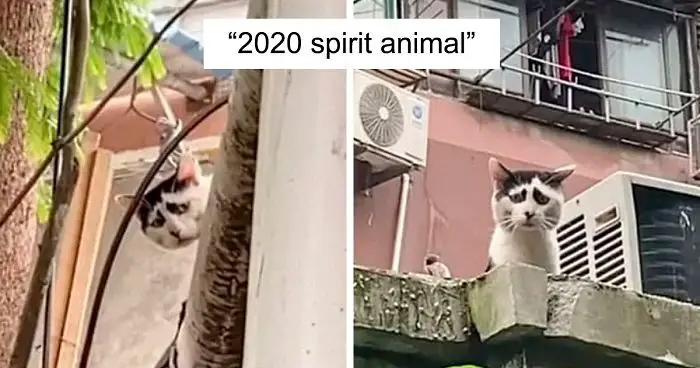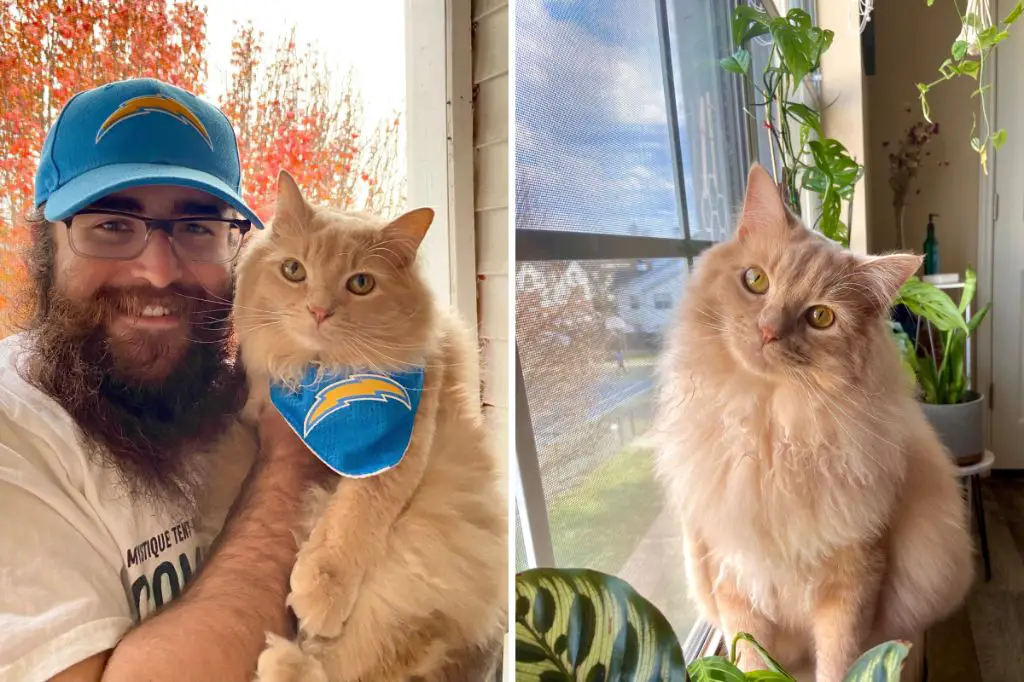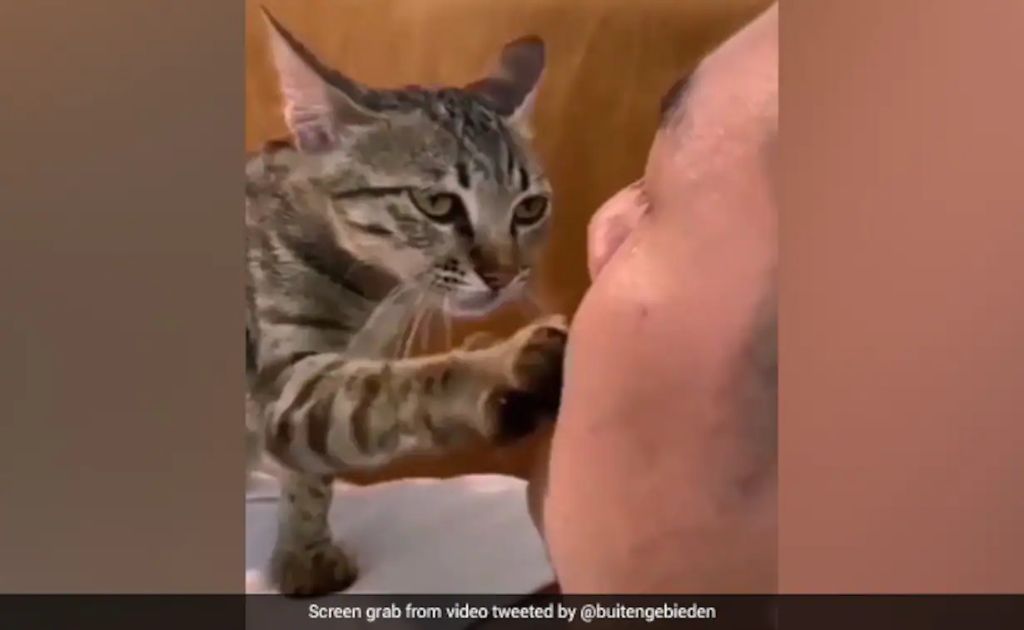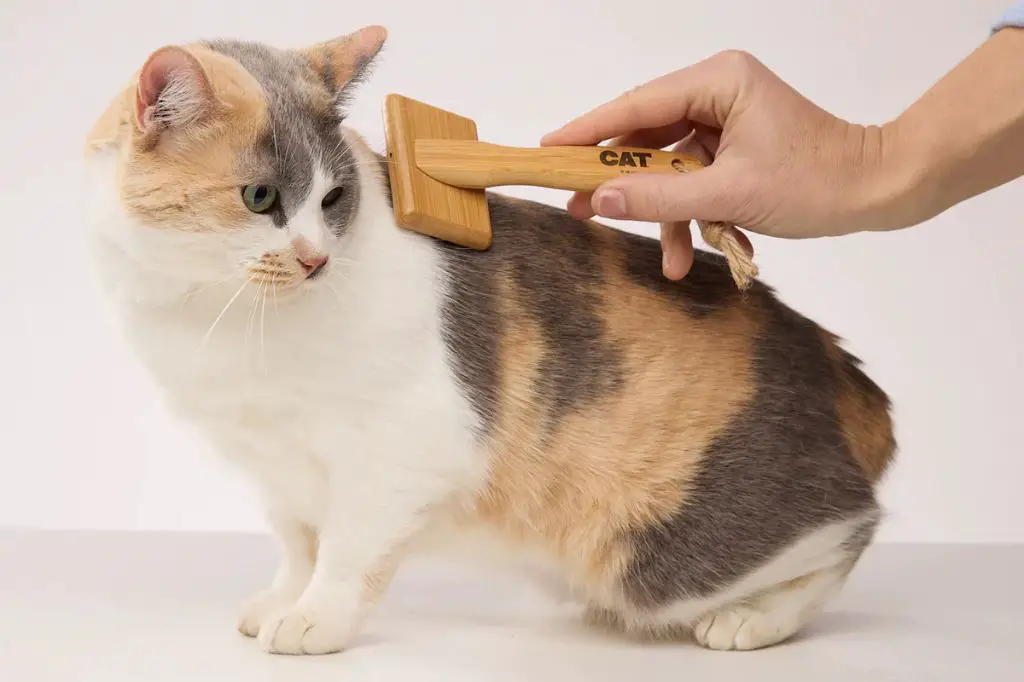The question of whether cats know when their owners are sad has puzzled animal lovers for many years. While cats may not fully understand complex human emotions, research shows they can actually detect when a person is upset and often respond in calming, comforting ways. This article will explore how cats perceive and react to human sadness and distress. We’ll cover the possible explanations for their sensitive and sympathetic abilities, look at anecdotal stories of cats comforting their sad owners, discuss how cats’ responses can vary between individuals, and explain how the human-feline bond may be strengthened through this empathetic connection.
Cats Are Attuned to Human Emotions
Research shows that cats are remarkably attuned to human emotional states. A 2020 study published in the journal Animal Cognition found that cats can distinguish between positive and negative emotional expressions in humans. The researchers had cats view images of smiling or angry human faces, coupled with recordings of happy or angry human voices. The cats looked longer at the angry faces, suggesting they found those faces more alarming or confusing. Their pupils also dilated more in response to the angry faces, indicating increased arousal and attention (Quaranta et al., 2020).
Another 2022 study in Animal Cognition went even further, demonstrating cats’ ability to integrate visual and auditory cues to recognize four distinct human emotions: happiness, sadness, anger and disgust. This study suggests cats not only distinguish positive from negative emotions, but can discriminate between specific negative emotions as well (Merola et al., 2022).

While more research is still needed, these findings indicate cats pay close attention to human facial expressions and vocal tones. They seem capable of perceiving when their owners are happy, sad, angry or disgusted.
Possible Explanations
There are several theories on how cats might be able to detect human moods and emotions:
Facial expressions and vocal cues – Cats may pick up on subtle changes in facial expressions, body language, tone of voice, and other cues that indicate sadness or distress. Humans display many visual and auditory signals when experiencing emotions. Research suggests cats can learn to associate these signals with certain emotional states.
Scent and pheromones – Humans produce pheromones and other scent signals that can convey emotional states. A 2021 study found cats are attuned to human emotional chemosignals and may be able to detect signatures of sadness and depression.
Intuition – Some believe cats have an innate sixth sense, intuition, or ability to psychically tap into human emotions. The precise mechanism is unknown, but anecdotal reports suggest cats sometimes seem to intuit when their human companion is sad or distressed.
Familiarity and observation – Since cats form close bonds and observe human behavior, they learn to recognize each individual human’s normal mood and actions. Dramatic shifts from the norm may alert a cat that something is amiss.
In summary, cats have multiple potential ways of detecting human emotional states, but more research is still needed to determine the exact mechanisms.
Anecdotal Evidence
There are many heartwarming anecdotes of cats comforting their sad or ill owners. According to one story on the CatBandit blog, a cat named Bella stayed by her owner James’ side during his final days battling cancer. She purred and cuddled with him, seemingly sensing his need for comfort and companionship (source).
On Reddit, users shared their own experiences of cats providing comfort during difficult times. One person described how their cat curled up with them and purred whenever they cried, acting as a source of soothing support (source).
According to the CatBandit blog, there are many examples of cats staying close to their sick owners, offering calming companionship. One cat slept on her owner’s hospital bed every day during her cancer treatments. Their presence seemed to provide relief during stressful medical procedures (source).

Cats Respond to Sadness Differently
Cats may react to human sadness in different ways, depending on the cat’s personality and bond with their human. According to petcube.com, some cats become more affectionate and attentive when they sense their human is sad or depressed. They may cuddle up close, purr louder, or even bring small gifts like toys or hunting trophies to try to cheer up their human.
Other cats may become quieter and want to be near their human without direct interaction. They may follow their human from room to room or curl up at their feet while they are sitting down. Some cats even learn to meow in a sympathetic tone or chirp softly when their human cries.
However, some cats may avoid their human or hide when they sense sadness. Highly sensitive cats can become stressed by human emotions, especially cats who have anxiety issues themselves. These cats need a safe space to retreat to when tensions are high. With time and trust, they may eventually learn to offer comfort from a slight distance.
According to basepaws.com, the best response is to let the cat react naturally and not force interaction. Cats that avoid sadness just need patience and calming activities like playtime to rebuild confidence.
It Depends on the Cat
Cats have distinct personalities, just like humans. While some cats may seem aloof, others are quite attentive to their owners’ moods and feelings. According to a study from the University of Sussex, a cat’s personality plays a major role in their capacity for empathy. The study found that cats who scored higher for traits like sensitivity, attachment and attentiveness also responded more strongly when their owners were sad or distressed. These empathetic cats not only approached their upset owners more frequently, but also engaged in supportive behaviors like purring, rubbing, kneading and gaze-following. On the other hand, more aloof or solitary cats showed less interest in their owners’ moods and did not demonstrate the same nurturing behaviors. So an outgoing, people-oriented cat is more likely to intuit when you’re sad and try to console you.
A cat’s early experiences can also impact how attentive they are to human emotions later in life. Kittens that are frequently handled, cuddled and exposed to human interaction tend to be more empathetic and attentive as adults. Kittens that lack positive human contact may grow up to be more detached and indifferent to their owners’ feelings. So nurture does play a role in shaping a cat’s capacity for empathy.
In the end, it depends on each cat’s unique personality and history. While some cats are extremely tuned in to their owners’ emotions, others are more independent. But the good news is that cat empathy can be encouraged through regular positive interactions and relationship-building activities like playtime. The stronger your bond with your feline friend, the more likely they are to notice when you need comfort.
Cats Show Empathy
There is evidence that cats display empathetic behaviors toward humans. According to a recent study from the University of Sussex, cats appear to exhibit signs of emotional contagion with their owners. The researchers found that cats mirrored their owner’s positive emotions and were more likely to approach and touch them.
In another study published in the journal Animal Cognition, cats were more likely to approach and make contact with crying owners versus humming owners. The researchers concluded this was evidence of cats responding with empathy and trying to comfort their distressed owners.
Anecdotal reports from cat owners also suggest cats are attuned to human emotions. Many owners share stories of their cat coming to check on them when they are sad or sick, almost as if their cat was trying to help them feel better. This empathetic behavior helps strengthen the bond between cats and their humans.

Strengthening the Bond
Spending quality time with your cat is the best way to develop a close bond. Here are some tips:
Play with your cat using interactive toys like feather wands and laser pointers. Kittens especially need active playtime. Make playtime a daily routine. Cats enjoy routine and look forward to this special time with you (Source).
Talk softly to your cat as you play together or pet them. They will begin to associate your voice with comfort and care. Use their name often so they recognize it (Source).
Offer treats by hand and provide meals on a consistent schedule. Feeding time is an opportunity for positive reinforcement. Place food bowls near where family members gather.
Set up cozy nap spots around the home so your cat can relax near family activities. Cats want to feel like part of the household.
Grooming is important bonding time. Brush your cat regularly if they enjoy it. Offer praise and treats during grooming.
Respect your cat’s personality. Go at their pace and don’t force interactions. Let them come to you when ready. Soon your cat will seek affection and enjoy laptime.

When to Seek Help
While it’s normal for cats to have occasional mood changes, prolonged signs of sadness or lethargy may indicate depression or other health issues. According to PetMD, some signs that your cat may be depressed include lack of interest in food or play, excessive sleeping, avoidance of human interaction, aggression, and inappropriate elimination outside the litter box. If your cat is displaying these behaviors persistently for over 2 weeks, it’s a good idea to schedule a veterinary exam to identify any potential underlying medical causes.
Certain life events may trigger depression in cats, such as the loss of a companion animal or a drastic change in environment. The death of a longtime human companion can also lead to depressive symptoms in some cats. According to WebMD, grieving cats may vocalize more, sleep excessively, go off their food, or act more clingy and attention-seeking than usual. While grieving is normal, if symptoms persist beyond a month, veterinary advice is recommended.
Along with diagnosing any medical issues, vets may prescribe antidepressant medication in severe cases of feline depression. However, medication should be used cautiously under veterinary supervision, as cats can be very sensitive to side effects. Your vet may also recommend environmental changes to help lift your cat’s mood, such as introducing new toys, spending more playtime together, or using synthetic feline pheromones to help your cat feel more secure.
Most importantly, be patient with your grieving or depressed cat, and offer them plenty of affection and reassurance. Monitor their health, and contact your vet if your cat’s sadness persists or you have any concerns about their wellbeing.
Conclusion
In summary, research shows that cats are remarkably attuned to human emotions and moods. While they may not fully understand complex emotions like sadness, their observational skills allow them to detect subtle cues and changes in behavior that indicate when their human companion is feeling down or depressed. Anecdotal reports from cat owners provide numerous examples of cats offering comfort and support when they sense someone is sad. Though cats express empathy differently than humans, their presence and affection can lift one’s mood and strengthen the human-feline bond. If feelings of sadness persist, it’s important for cat owners to seek professional help. But in times of emotional need, evidence confirms that cats often know when you are sad and make themselves available to provide solace.

